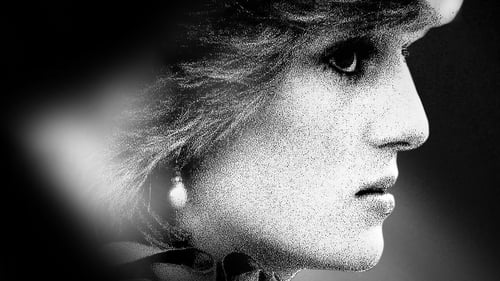
Self (archive footage) (uncredited)
Décadas após sua prematura morte, a princesa Diana ainda evoca o mistério, glamour e o conto de fadas moderno por excelência e que não teve um final feliz. Filmado integramente a partir de imagens de arquivo.
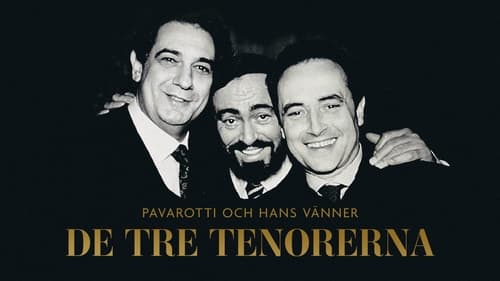
Himself
Billions watched as Luciano Pavarotti, Placido Domingo and José Carreras performed for the first time as The Three Tenors 30 years ago. This is their story.
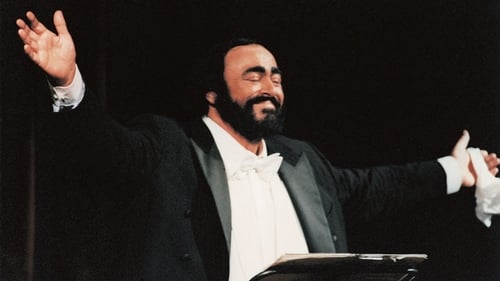
Self (archive footage)
O Campeonato do Mundo de Futebol de 1990 em Itália foi o momento em que a ópera deixou de ser exclusiva das elites e atingiu as massas. A estrela da ópera Pavarotti juntou-se aos colegas tenores Plácido Domingo e José Carreras no palco em Roma, numa transmissão vista por 1.4 biliões de pessoas no mundo inteiro. A poderosa interpretação de "Nessun Dorma" continua a representar uma das mais populares e famosas performances que o mundo alguma vez ouviu, e assim Pavarotti realizou o seu velho sonho de tornar a ópera mainstream. Ron Howard toma uma abordagem íntima para contar a história de Pavarotti, indo para além da icónica figura pública para revelar o homem mesmo.
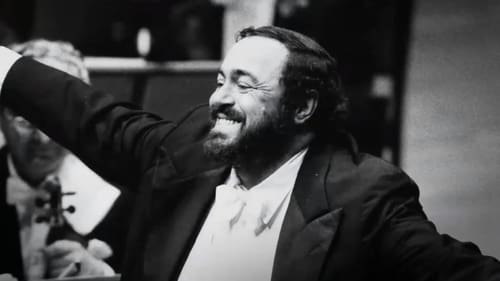
Self (archive footage)
Although he is unanimously credited with having democratised opera, making it accessible to the greatest number, focus is rarely put on the strategy he devised and implemented in order to carry out his actions, nor what his actions reveal of the man and artist, and of the resulting metamorphosis from opera singer to pop artist. Through this angle, this film sets out to pay tribute to the man who summed up his credo, obsession and life’s work, in the following way: “They led the public to believe that classical music belonged to a restricted elite. I was the way to prove to the world that was wrong.

Self (archive footage)
The Three Tenors began their collaboration with a performance at the ancient Baths of Caracalla in Rome, the eve of the 1990 FIFA World Cup Final. Following the big success of the 1990/1994 concerts, The Three Tenors opened a world tour of 31 concerts, the last one in 2003. Seven of these 31 concerts had been recorded for TV but disappeared somewhere in London. All attempts to bring back these invaluable recordings to the audience failed. Now, after all these years, C Major in cooperation with Three Tenors Ltd. managed to assemble the most beautiful moments of six lost concerts in Munich, Tokyo, London, Vienna, New York and Pretoria.
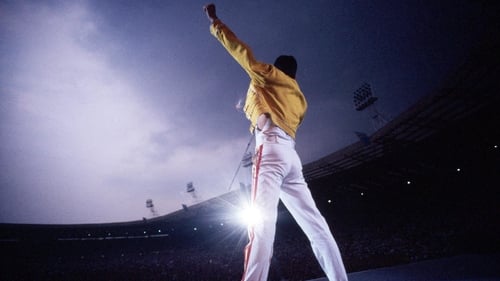
Self (archive footage)
Ganhador do Rose D'Or 2013 e um Emmy Internacional no mesmo ano, o documentário mostra o vocalista de Queen durante seus projetos fora da banda.

Self (archive footage)
With a career that includes a 35-year tenure as composer of the Berlin Philharmonic and record sales topping 200 million, Herbert von Karajan is one of the most legendary figures in 20th-century classical music. Comprised of archival footage, performance highlights and interviews with the likes of Anne-Sophie Mutter, Christa Ludwig and Seiji Ozawa, this retrospective chronicles the life and times of the iconic Austrian maestro.

Self
LUCIANO PAVAROTTI was the rare artist who could easily bridge the divide between classical and popular music. Together with an impressive roster of the best-known names in rock, pop and jazz, Pavarotti entertained millions of people around the world with his "Pavarotti & Friends" concerts. This release is the first time that these tracks have been brought together in one album! Rarely has such a glittering array of singing legends from such varied genres been brought together at one time--on both DVD and CD! Featuring Bryan Adams, Andrea Bocelli, Bon Jovi, Bono/The Edge/Brian Eno, Mariah Carey, Eric Clapton, Sheryl Crow, Celine Dion, The Eurythmics, Elton John, Lionel Richie, Frank Sinatra, Sting and Zucchero.

Katherine Jenkins introduces a look back at the outdoor concert given by the great tenor Luciano Pavarotti, then 55, in July 1991 to celebrate 30 years of singing opera. The star studded audience included the Prince and Princess of Wales, Michael Caine and Andrew Lloyd Webber.

Self
An intimate portrait of iconic photographer Helmut Newton shot by his wife and fellow photographer June Newton.

Self
As vocalist for Deep Purple and Black Sabbath and the title performer on Andrew Lloyd Webber's original "Jesus Christ Superstar" album, Ian Gillan has lived a life in rock. Explore his career with exclusive concert footage and interviews with music luminaries ranging from Joe Satriani to Luciano Pavarotti. Also included are concert highlights that span Gillan's career and rarely seen television appearances.

Himself
Luciano Pavarotti at his best during the 1978 Christmas concert. The first video recording of this great singer in a magnificent performance of sacred music, Schubert's Ave Maria, Franck's Panis Angelicus and other Christmas melodies, such as Minuit, Crétiens at the historic Montreal Notre-Dame basilica. This program received the Christopher Society of New York award in 1981.

Liza Minnelli, Michael Caine, Adam Sweeting, Tim Arrowsmith, Ian McKellen, Eric Clapton, José Carreras, Bono, Anthony Haas, Luciano Pavarotti, Francis Hanly, Dustin Hoffman, Erica Banks, Plácido Domingo, Brian May, Anthony Wall, Ricky Martin, Andrea Bocelli

himself

The gravel voiced Italian singing sensation and his entourage performed at London's Royal Albert Hall on May 4, 2004. The concert is captured on this disc for his many fans around the world.

Self
Tribute Concert from Pavarotti and Friends

Himself
The Three Tenors capture the joy and spirit of the season with their first ever Christmas concert, live from Vienna, featuring performances of international seasonal favorites by the best-selling and world-renowned trio. Enjoy the gifts of The Three Tenors and be part of the holiday event of the year.

Self
Pavarotti & Friends for Guatemala and Kosovo

Himself
Great Tenor Performances outbids the famous Three Tenors by putting a dozen tenors (including the big three--Jose Carreras, Placido Domingo, and Luciano Pavarotti) in one compilation. One or two numbers fall short of greatness, but within the limits of what was available to them, the producers live up to the ambitious title. Domingo is particularly well represented with three arias, and Carreras has two. Only one Pavarotti performance is shown, but it's a good one: a youthful Celeste Aida from San Francisco. But the real meat is in the work of the other nine tenors. The muscular Samson of Jon Vickers contrasts with the bel canto delicacy of Mark Ainsley and Max-Rene Cosotti. Vladimir Atlantov as Otello, Giacomo Aragall as Cavaradossi, and Neil Shicoff as Rodolfo in La Bohème show that Domingo is not the sole proprietor of these roles. A pleasing rarity is Roberto Alagna in two excerpts from Verdi's original version of Don Carlos, with a French text.

Self
The Three Tenors: Paris 1998 (re-released with the subtitle The Concert of the Century) is a live album by José Carreras, Plácido Domingo, and Luciano Pavarotti with conductor James Levine. The album was recorded at a Three Tenors concert on 10 July 1998 during celebrations for the FIFA World Cup. The concert took place in front of the Eiffel Tower on the Champ de Mars in Paris, France. The Orchestre de Paris accompanied the singers. The audience at the live concert numbered around 150,000 people.[2] A sound system and large screens were placed along the Champ de Mars for the crowds further back to see and hear the performance.[2] Producer Tibor Rudas claimed prior to the concert that 2 billion viewers were expected to watch the televised performance worldwide.[3]

Celebrating a great artist is always a gala occasion, but when the honoree is the legendary Luciano Pavarotti, the event is one to treasure. To pay tribute to the 30th anniversary of Pavarotti’s Met debut, the company featured him in fully staged excerpts of three operas: Act II of Donizetti’s L’Elisir d’Amore, Act III of Puccini’s La Bohème (the opera he sang at his debut), and Act IV of Verdi’s Aida. Joining the superstar tenor were colleagues like Ruth Ann Swenson, Leo Nucci, Daniela Dessì, Maria Guleghina, and Dolora Zajick, all conducted by James Levine.

Self
Pavarotti And Friends for the Children of Liberia

Andrea Chenier
This live from the Met telecast from October 1996 of Giordano’s infrequently performed verismo gem is an absolute pleasure to watch and listen to and I highly recommend it. Nicholas Joel’s production is extremely elegant while at the same time being simple and uncluttered. Act I, for example, is dominated by an enormous gilt-framed mirror precariously tilted. I assume that it is a metaphor for the imminent downfall of the decadent aristocracy at the party given by the Contessa di Coigny. The costumes designs by Hubert Monloup are terrific. The prerevolutionary costumes in Act I are simply stunning each one individually tailored for the choristers and major performers.

Himself
Pavarotti And Friends For War Child

Himself
Pavarotti And Friends Together For Children Of Bosnia

Canio
Puccini's Il Tabarro & Leoncavallo's Pagliacci; Pavarotti and Domingo star in MET 1994-1995 season opener.

Himself
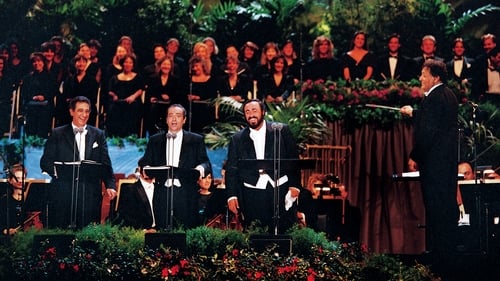
Himself
It's not opera; it's not a pop concert; it's not Broadway. It's all of these and none of them. Once you accept the fact that this sequel to the original blockbuster concert recording is less about music and more about entertainment and the power of musical personalities, you can appreciate what you're hearing as an event--phenomenal and bizarre, momentous and frivolous. This is an occasion to celebrate the voices and egos of three huge superstars, and to have fun listening as Luciano Pavarotti, Placido Domingo, and Jose Carreras interact, bouncing lines off each other and playing to the overwhelmingly enthusiastic audience.

James Levine’s love for this seldom-heard score infuses every measure of Verdi’s music. Superstar Luciano Pavarotti heads the cast as the Muslim warrior prince Oronte who converts to Christianity out of love for the Italian Giselda (Lauren Flanigan)—before dying of the wounds he received in battling the Crusaders. Samuel Ramey is the Crusader-turned-hermit Pagano. Mark Lamos’s striking production has sets by John Conklin and costumes by Dunya Ramicova.

Himself
Luciano Pavarotti live from the Piazza Grande, Modena.

Singer
Tony Randall and some children, filmed in Connecticut, provide the framework of the history of some of the carols sung by opera stars.

Don Carlo
This opera was filmed live at La Scala in 1992. The all-star cast includes Luciano Pavarotti, Samuel Ramey, aolo Coni, Daniela Dessi, Luciana d'Intio, and Alexander Anismov. Riccardo Muti conducts.

Himself
Pavarotti & Friends

Nemorino
John Copley’s colorful production, with designs by Beni Montresor, was created around the beloved superstar Luciano Pavarotti. As the simple, good-hearted Nemorino, he enchanted audiences with his larger-than-life personality as well as his golden voice. Enzo Dara as the quack Dr. Dulcamara provides the elixir of the title that helps Nemorino win the heart of Adina, the girl of his dreams, sung with youthful energy by Kathleen Battle.

Self
Dubbed ‘La Stupenda’ thirty years ago by an Italian critic, Dame Joan Sutherland and her husband Richard Bonynge talk at length about her distinguished singing career and their life together in opera. The film combines documentary, archival material and performance to present a unique retrospective of those years. Affectionate contributions from some of their close friends and colleagues, including Luciano Pavarotti, Marilyn Horne, Dame Kiri Te Kanawa and fellow Australian Sir Sidney Nolan, add to a celebration of Dame Joan’s singular talent.

Gustav III
Verdi's opera performed by the Metropolitan Opera Orchestra and Chorus, conducted by James Levine.

After the Viennese premiere, the Fledermaus (the bat) conquered the world. It is one of the few operettas that are regularly performed at the major opera houses such as the Metropolitan Opera, the Scala Milan, the Vienna State Opera and the Royal Opera House Convent Garden in London. John Cox directed this lavishly equipped production by Julia Trevelyan Oman initially in London in 1977. On New Year's Eve 1990, this staging offered the luxurious ambiance for the farewell to Joan Sutherland from her London audience. The singer had admired them since her first great success at this prestigious opera house in the fifties. The rushing feast in the second act reached its climax with its stormy cheered performance and the commitment of her friends and colleagues Luciano Pavarotti and Marilyn Horne, with whom she often stood together on the stage.
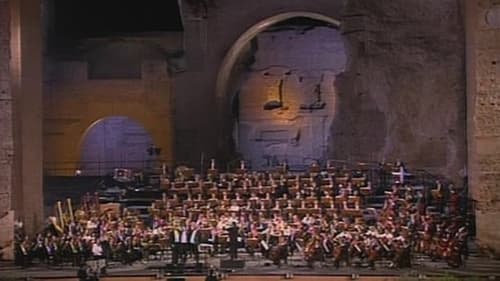
Com as grandes vozes dos tenores Luciano Pavarotti, Plácido Domingo, José Carreras em um concerto:
1.E la solita storia (Lamento di Federico)
2.O Paradiso
3.Recondita Armonia
4.Dein ist mein ganzes Herz
5.Rondine Al Nido
6.Core 'ngrato
7.I vespri siciliani Overture
8.Torna A Surriento
9.Granada
10.No Puede Ser
11.L'Improvviso ('Un di all'azzurro spazio')
12.E Lucevan Le Stelle
13.Nessun Dorma
14.Finale - Medley
15.O Sole Mio (encore)
16.Nessun Dorma (encore)
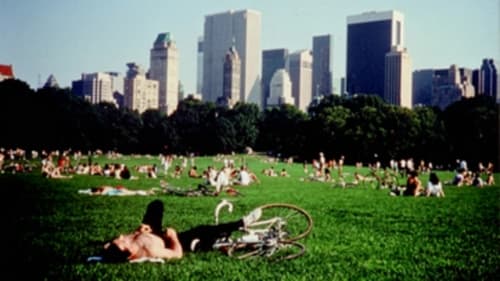
Himself
CENTRAL PARK is a film about the famous New York City landmark and the variety of ways in which people make use of it: running, boating, walking, skating, music, theatre, sports, picnics, parades and concerts. The film also illustrates the complex problems the New York City Parks Department deals with in order to maintain and preserve the park and keep it open and accessible to the public.

Himself
Opera greats Luciano Pavarotti and Joan Sutherland -- one of the most acclaimed tenors and one of the most beloved sopranos of the 20th century -- take the stage at the Met for a gala evening of opera scenes with special guest Leo Nucci. Filmed in 1987, the memorable program includes scenes from the first and third acts of Donizetti's "Lucia di Lammermoor," the third act of Verdi's "La Traviata" and the third act of Verdi's "Rigoletto."
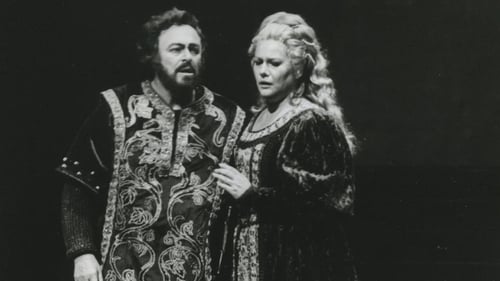
Manrico
Luciano Pavarotti brings his spectacular voice and artistry to one of the most famous of all tenor roles—Manrico, the ardent troubadour, trapped in an impossible situation by forces beyond his control. The sensational Dolora Zajick, only days after her Met debut, gives an incandescent performance as the demented gypsy Azucena, thirsting for revenge against Count Di Luna (Sherrill Milnes). Eva Marton is the passionate Leonora, desired by both Manrico and the Count, and James Levine brilliantly leads the Met’s orchestra and chorus in some of Verdi’s best-known music.

Rodolfo
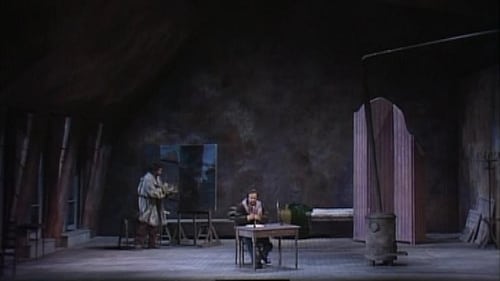
Rodolfo
Giacomo Puccini's bittersweet opera of high-spirited bohemians and the doomed love between Rodolfo, the idealistic poet and Mimi, the consumptive flower-maker, is a beautifully balanced series of tableaux depicting the infectious joie de vivre of youth and the tragic waste of disease and separation. The legendary and incomparable partnership of Mirella Freni and Luciano Pavarotti as the two lovers has been captured in this special live recording from stage of the San Francisco Opera. Brian Large has adapted Francesca Zambello's production for video, further illuminating the fascinating interaction of Puccini's characters. Gino Quilico sings Marcello, the colorful and moody painter, whose tempestuous relationship with the flirtatious Musetta (sung by Sandra Pacetti), comically mirrors the more profound love of Rodolfo and Mimi. Nicolai Ghiaurov sings Colline.

Luciano Pavarotti

Radamès
La Scala went all out for its 1986 production of this grandest of grand operas, with a strong cast and, most important for a video recording, a larger-than-life staging. The Triumph Scene in Act II is by no means Aida's only attraction, but it is the part that makes the strongest and most lasting impression and it is the visual and musical climax of this production. Stage director Luca Ronconi brings on a procession to dwarf all processions: looted treasures, heroic statuary, miserable captives struggling under the lash of whip-bearing slave drivers. On par with these visuals is Lorin Maazel's first-class performance of the popular Grand March with the outstanding La Scala chorus and orchestra. In Act III, the contrasting tranquility of the Nile Scene also gets a visual treatment to match the music's qualities.

Ernani
Verdi's early masterpiece is based on a Victor Hugo play with a complicated plot concerning a young woman and the three men vying for her affections—her elderly uncle, a king destined to become Holy Roman Emperor, and a bandit who is actually an overthrown nobleman. Though there is plenty of action arising from the various passions and grudges scattered among these characters, the opera is best appreciated as a feast of beautiful and dramatic Italianate singing. With virtuosic roles for a quartet of principals, the opera delivers one feat of heroic vocalism after another.

Himself
In celebration of its 100th anniversary in 1983, the Metropolitan Opera hosts a four-hour performance uniting some of the world's most spellbinding opera singers and conductors. The event includes a ballet from Samson et Dalila and boasts incredible classical performances from Kathleen Battle, Plácido Domingo, Jose Carerras, Leonard Bernstein, Marilyn Horne, Leona Mitchell, Luciano Pavarotti and many more.
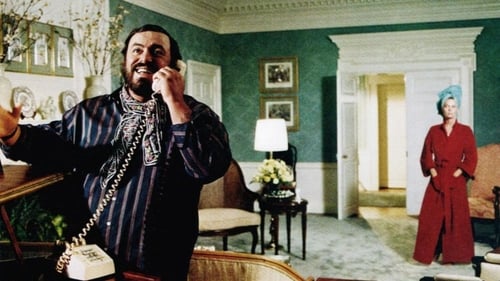
Giorgio Fini
A famous opera singer, Giorgio Fini, loses his voice during an American tour. He goes to a female throat specialist, Pamela Taylor, whom he falls in love with.
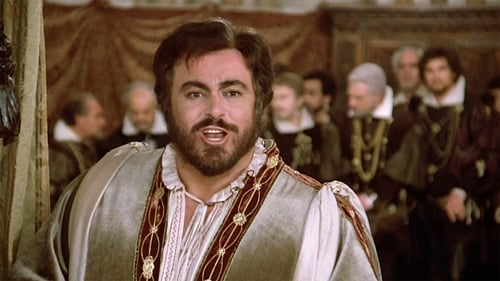
Il Duca di Mantova
Rigoletto is a jester in the court of the Duke of Mantua. He has a hunch-back and he's rather unattractive, but he's good at his job of humiliating the courtiers for the amusement of the Duke. The courtiers, of course, are not amused. The Duke is a ladies man who feels his life would be meaningless if he couldn't chase every skirt he sees. In fact, we learn as the opera begins that he's recently been noticing a young lady every Sunday on her way to church, and he's vowed to have his way with her. What nobody realizes is that the girl is the jester's beloved daughter, Gilda, and that Gilda has seen the Duke every Sunday and is smitten with him. Suddenly Count Monterone appears at court, furious that the Duke has seduced his daughter. Rigoletto ridicules Monterone, the Duke laughs, and Monterone casts an awful curse on both of them. Later, the courtiers discover that Rigoletto is secretly living with Gilda...

Idomeneo
Opera royalty Luciano Pavarotti brings dignity and power to the title role in this 1982 production. During a squall at sea, Idomeneo -- the king of Crete -- swears to Neptune that if the monarch survives, he'll sacrifice the first person he encounters onshore. Tragically, that person ends up being his son, Idamante (Frederica Von Stade). Maestro James Levine masterfully conducts the orchestra and chorus of the Metropolitan Opera. A musical production that was designed for the "Live From the Met" series, this program was produced by Jean-Pierre Ponnelle.

Radamès
tt0255782. Aida (1981) San Francisco. Verdi / Italian. An Egyptian military commander, Radamès, struggles to choose between his love for the enslaved Ethiopian princess Aida, and his loyalty to the Pharaoh. To complicate the story further, the Pharaoh's daughter Amneris is in love with Radamès, although he does not return her feelings.
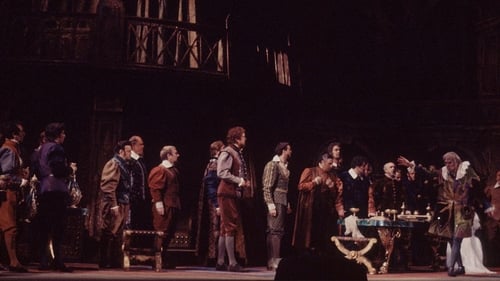
Il Duca di Mantua
The opera's dramatic structure frames and enhances the characters. Scenes of magnificence regularly alternate with scenes of darkness and squalor. From sumptuous interiors, we move to a dark street, a lonely inn. The secondary figures are astutely counterpoised: the plotting courtiers against the plotting Sparafucile and Maddalena (also ambiguously tender-hearted). When Rigoletto says "Pari siamo", he could be expressing the motto of the whole work: the beautiful and the ugly can be equally good, equally evil.

Nemorino
The incomparable Luciano Pavarotti at his most eloquent brings Donizetti’s Nemorino to live as only he can, combining vocal fireworks, personal charisma, and charm. The enchanting production by Nathaniel Merrill, with designs by Robert O’Hearn, is the perfect setting for Nemorino’s quest to win the heart of beautiful Adina, sung by the sparkling Judith Blegen. Brent Ellis as Belcore and Sesto Bruscantini as Dr. Dulcamara round out the all-star cast. Nicola Rescigno conducts.

Nemorino
Live performance Met 1981.

Himself

Riccardo, Count of Warwick and Governor of Boston
Live from the Metropolitan Opera, 14 February 1980. This version takes place in Boston rather than Sweden.

Rare recording of the 1979 San Francisco performance of La Gioconda by Ponchielli

Mario Cavaradossi
A stellar cast brings Puccini’s spellbinding opera to life, seizing every opportunity to thrill the audience. Luciano Pavarotti is Cavaradossi, the painter and political revolutionary in love with the beautiful and famous singer Tosca (the riveting Shirley Verrett). Rome’s diabolical chief of police, Baron Scarpia (Cornell MacNeil), wants Tosca for himself—but he underestimates the fury of a woman in love. With torture, murder, and a suicide in its final moments, Tosca packs more dramatic punches than most other operas—and this classic telecast captures them all. James Conlon conducts in a production by the incomparable Tito Gobbi, one of the great Scarpias of the 20th century.
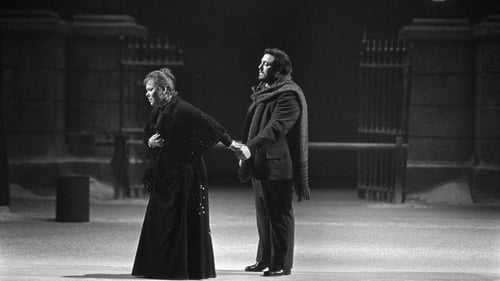
Rodolfo
Puccini’s heartbreaking story of young love in the garrets of Belle Epoque Paris has attracted many famous singers through the years. But with James Levine at the helm and the starry duo of Luciano Pavarotti and Renata Scotto as Rodolfo and Mimi, every bit of emotion in the score pours across the footlights and seduces the audience. In this case, the audience was in the millions since this was the very first in the “Live from the Met” series of telecasts. The evocative production is by Fabrizio Melano, designed by Pier Luigi Pizzi.

Self - Tenor
Herbert von Karajan conducts La Scala Orchestra and Chorus with soloists Leontyne Price, Fiorenza Cossotto, Luciano Pavarotti, and Nicolai Ghiaurov.




















